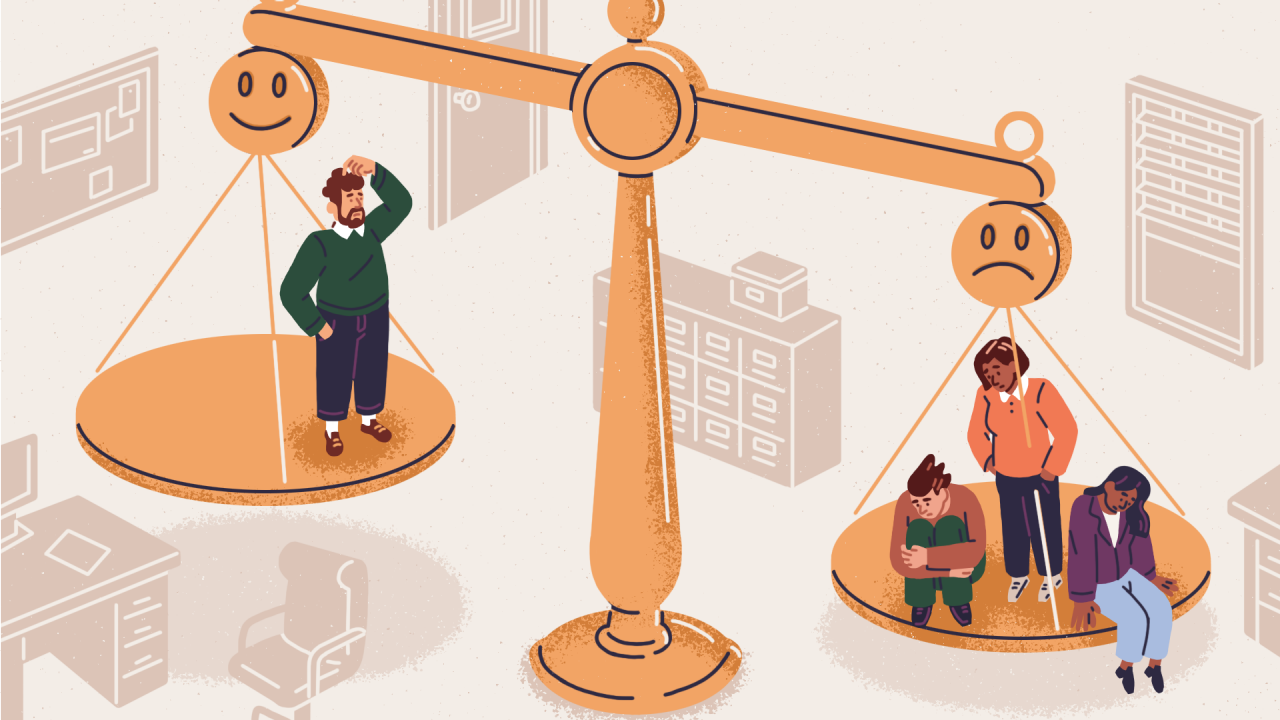

The Unexpected Benefits of Pessimistic Employees: A Quinn Vietnam Manpower Perspective
- trienkhaiweb
- 27 January, 2025
- 0 Comments
Optimizing Your Workforce: Why Pessimism Can Be an Asset
In the dynamic landscape of 2025, businesses are constantly seeking ways to optimize their workforce and gain a competitive edge. While optimism is often lauded as a desirable trait, Quinn Vietnam Manpower recognizes the unexpected benefits that pessimistic employees can bring to an organization. This article delves into the unique advantages of having a “glass-half-empty” perspective on your team and how it can contribute to success.
Quinn Vietnam Manpower: Your Partner in Talent Acquisition
Quinn Vietnam Manpower is a leading provider of manpower solutions, connecting businesses with top talent across various industries. With our expertise in recruitment and selection, we understand the importance of building a diverse and well-rounded team. While optimism is often considered a key ingredient for success, we believe that pessimism, when properly managed, can also be a valuable asset.

The Power of Pessimism: Unveiling Hidden Strengths
Pessimistic individuals tend to approach situations with a critical eye, always considering potential risks and challenges. While this may seem like a negative trait, it can actually be incredibly beneficial in a workplace setting. Let’s explore some of the key advantages that pessimistic employees bring to the table:
- Risk Mitigation and Problem Prevention
Pessimists have a natural inclination to identify potential pitfalls and challenges that others may overlook. Their cautious nature allows them to foresee obstacles and develop contingency plans, minimizing the likelihood of costly mistakes and setbacks. By anticipating problems before they arise, pessimistic employees can help organizations avoid legal issues, product recalls, and damage to their reputation.
- Diverse Perspectives and Critical Thinking
While optimistic employees may readily agree with the majority, pessimists are more likely to challenge the status quo and offer alternative viewpoints. This can lead to more robust discussions, improved decision-making, and a greater understanding of potential risks and rewards. By encouraging critical thinking and diverse perspectives, organizations can foster a culture of innovation and continuous improvement.
- Thoroughness and Attention to Detail
Pessimistic individuals tend to be more meticulous and detail-oriented in their work. They are more likely to double-check their work, identify errors, and ensure that tasks are completed to the highest standards. This attention to detail can lead to increased productivity, improved quality, and reduced errors, ultimately benefiting the organization’s bottom line.
- Realistic Goal Setting and Resource Allocation
Pessimists are less likely to overestimate their abilities or underestimate the time and resources required to complete a task. This realistic approach can help organizations set achievable goals, allocate resources effectively, and avoid overcommitting to projects that may not be feasible. By promoting a culture of realistic expectations, organizations can improve their chances of success and avoid unnecessary stress and burnout.
- Effective Leadership and Mentorship
While pessimism may not seem like a leadership quality, it can actually be quite effective in certain situations. Pessimistic leaders tend to be more cautious and deliberate in their decision-making, considering all possible outcomes before taking action. This can inspire confidence in their team members and create a sense of stability and security. Additionally, pessimistic leaders can provide valuable mentorship by helping others identify potential challenges and develop strategies for overcoming them.

Quinn Vietnam Manpower: Finding the Right Balance
While pessimism can be a valuable asset, it’s important to strike a balance within your workforce. A team composed entirely of pessimists may struggle to maintain morale and motivation. Quinn Vietnam Manpower can help you identify and recruit individuals with a healthy mix of optimism and pessimism, ensuring that your team has the right balance of perspectives and personalities to thrive.
Conclusion
In conclusion, while optimism is often praised as a desirable trait, pessimism can also bring unique and valuable benefits to an organization. By recognizing the strengths of pessimistic employees and fostering a culture that values diverse perspectives, businesses can unlock their full potential and achieve greater success. Quinn Vietnam Manpower is committed to helping organizations build high-performing teams that leverage the strengths of both optimistic and pessimistic individuals. Contact us today to learn more about our manpower solutions and how we can help you optimize your workforce for success in 2025 and beyond.
Related articles
Employee Empowerment with Quinn Vietnam Manpower
In today’s dynamic business landscape, organizations are increasingly recognizing the importance of employee empowerment as a key driver of success. Quinn Vietnam Manpower, a leading provider of manpower solutions in Vietnam, understands that empowered employees are more engaged, productive, and committed to organizational goals. This article delves into the concept of employee empowerment, exploring its…
Quinn Vietnam Manpower’s 5 Steps to Successful Coaching in 2025
In today’s dynamic business environment, maximizing your manpower’s potential is crucial for success. Effective coaching programs are key to unlocking this potential, fostering employee growth, and driving organizational performance. Quinn Vietnam Manpower, a leading provider of manpower solutions, presents a comprehensive guide to successful coaching in 2025. Whether you’re leading coaching sessions yourself or partnering…
Functional Skills: A Guide for Quinn Vietnam Manpower’s Workforce in 2025
In today’s competitive job market, possessing strong functional skills is more critical than ever. For Quinn Vietnam Manpower, equipping our manpower resources with these essential skills is key to their success and the success of our partner businesses. This comprehensive guide explores the importance of functional skills, particularly in Math and English, and how Quinn…
Level Up Your Workforce: Gamification Strategies for Quinn Vietnam Manpower
In the competitive landscape of Vietnam’s manpower industry, attracting, engaging, and retaining top talent is more critical than ever. Quinn Vietnam Manpower recognizes the power of innovative solutions, and gamification is emerging as a game-changer in the realm of human resources. By integrating game mechanics and elements into various HR processes, Quinn Vietnam Manpower can…
3 Communication Skills Every Manager Needs to Thrive
In today’s rapidly evolving business landscape, effective communication skills are more critical than ever for managers. Whether you’re a seasoned leader or newly promoted, honing your communication abilities can significantly impact your team’s performance, morale, and overall success. This article delves into three essential communication skills every manager needs to master in 2025 and highlights…
Harnessing the Power of Insights with Quinn Vietnam Manpower
In the dynamic landscape of 2025, where businesses face unprecedented challenges and opportunities, the ability to gain profound insights is more critical than ever. For project management (PM) in Vietnam, this rings especially true. Quinn Vietnam Manpower, a leading provider of manpower solutions, recognizes the crucial role of insights in driving project effectiveness and organizational…







